”I contend that the strongest of all
governments is that which is most free“
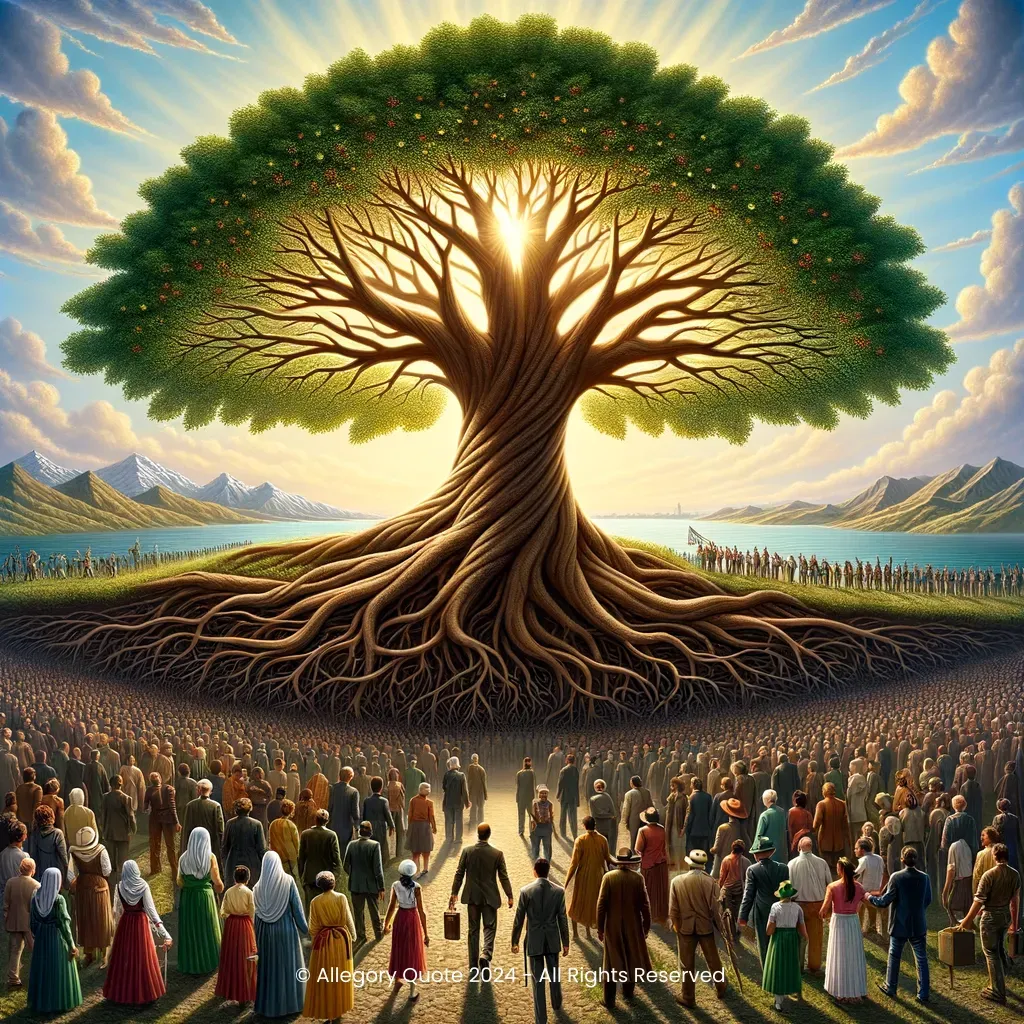
- Meaning
- Jefferson's quote means that a government that provides the greatest amount of freedom to its citizens is the most robust and enduring. The power and strength of a government, he contends, stem from its ability to protect freedoms rather than suppress them. This concept emphasizes the importance of civil liberties and democratic governance, suggesting that true strength lies in empowering the people.
- Allegory
- The powerful tree represents a government rooted in strong principles and values, signifying stability and resilience. Its far-reaching branches symbolize the expansive nature of freedom, providing growth and opportunities to all individuals. The leaves and fruits mean the rewards and benefits of a free society where civil liberties flourish. The people gathered around the tree illustrate collective support and the enrichment of society due to empowered and free individuals. The bright sky signifies optimism and the thriving condition of a well-balanced democratic state. The protective shadow underscores security, achieved not through authoritarian means but through the empowerment and happiness of the society's members. This holistic imagery reflects the balance and harmony that Jefferson's quote promotes.
- Applicability
- This teaching can be applied to personal life by advocating for environments that promote freedom and autonomy - whether in workplaces, communities, or relationships. In daily activities, it encourages individuals to support democratic processes, respect others' rights, and engage in civic duties that protect and promote their freedoms and those of their peers.
- Impact
- Jefferson's assertion has significantly impacted political philosophy and democratic theory. It has inspired movements for civil liberties and human rights worldwide, and it remains a foundational principle in advocating for democratic governance. This phrase is often cited in discussions and defenses of democracy and individual freedoms.
- Historical Context
- The phrase reflects Enlightenment-era ideals prevalent during the late 18th century when democratic ideas were gaining traction, especially in the United States and France. It aligns with the period's philosophical movement that emphasized reason, individualism, and the pursuit of knowledge.
- Criticisms
- Critics might argue that too much freedom can lead to chaos, anarchy, or the inability of a government to maintain order and provide essential services. Some believe that a balance between freedom and authoritative governance is necessary to ensure societal stability and security.
- Variations
- Variations of this phrase may appear in other languages, emphasizing the universal value of freedom and liberty in government. Different cultures may interpret the emphasis on freedom differently, balancing individual liberties with collective responsibilities based on historical and social contexts.
-

I can never consent to being dictated to.
-

It is easier to do a job right than to explain why you didn't.
-
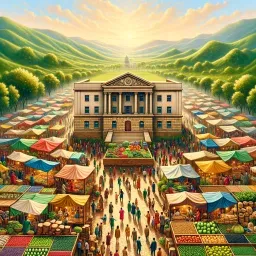
The goal to strive for is a poor government but a rich people.
-
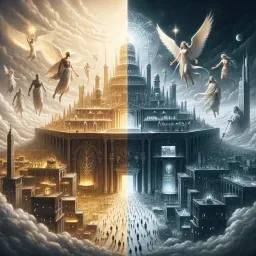
If men were angels, no government would be necessary.
-

No president who performs his duties faithfully and conscientiously can have any leisure.
-
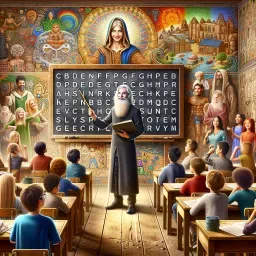
It is a damn poor mind indeed which can't think of at least two ways to spell any word.
-
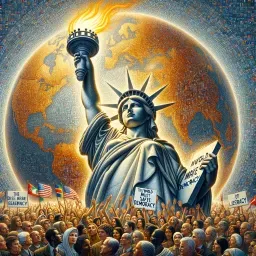
The world must be made safe for democracy.
-
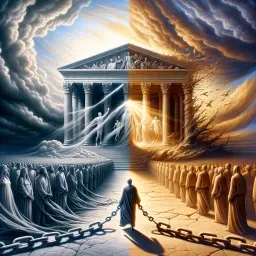
I tremble for my country when I reflect that God is just; that his justice cannot sleep forever.
-
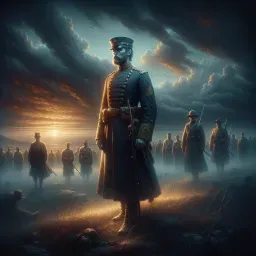
I have always done my duty. I am ready to die. My only regret is for the friends I leave behind me.
-
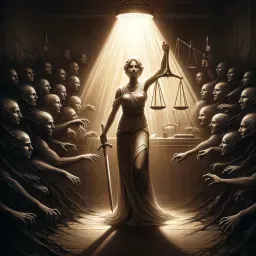
Facts are stubborn things; and whatever may be our wishes, our inclinations, or the dictates of our passion, they cannot alter the state of facts and evidence.
No Comments